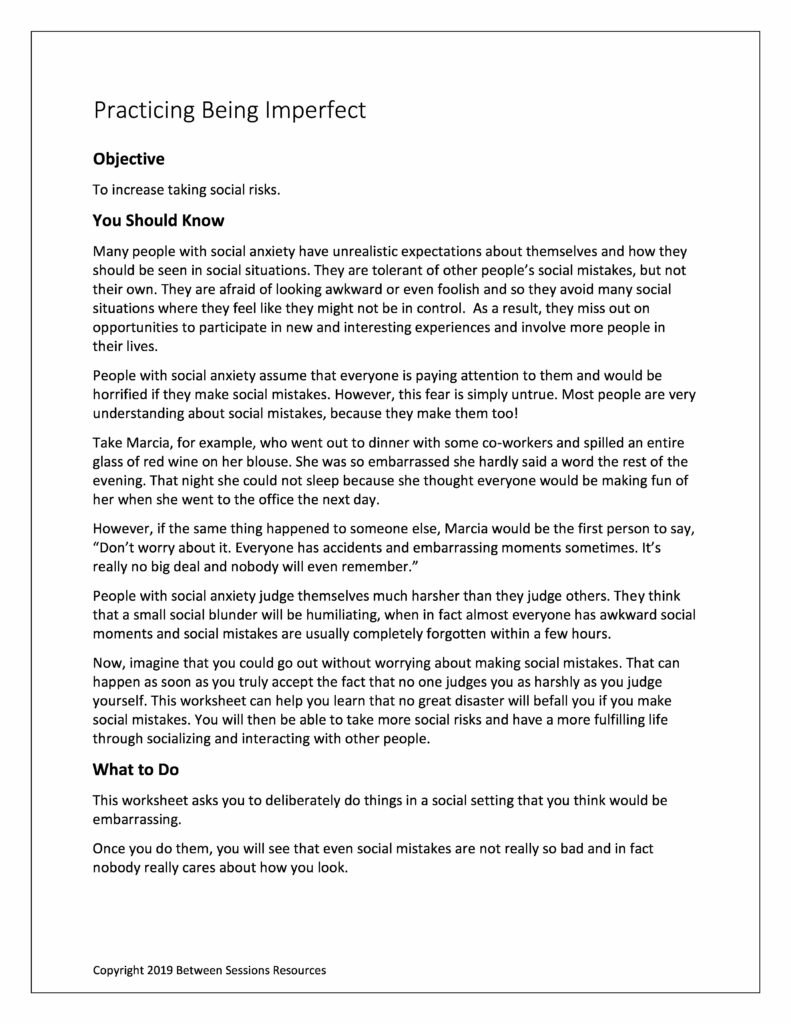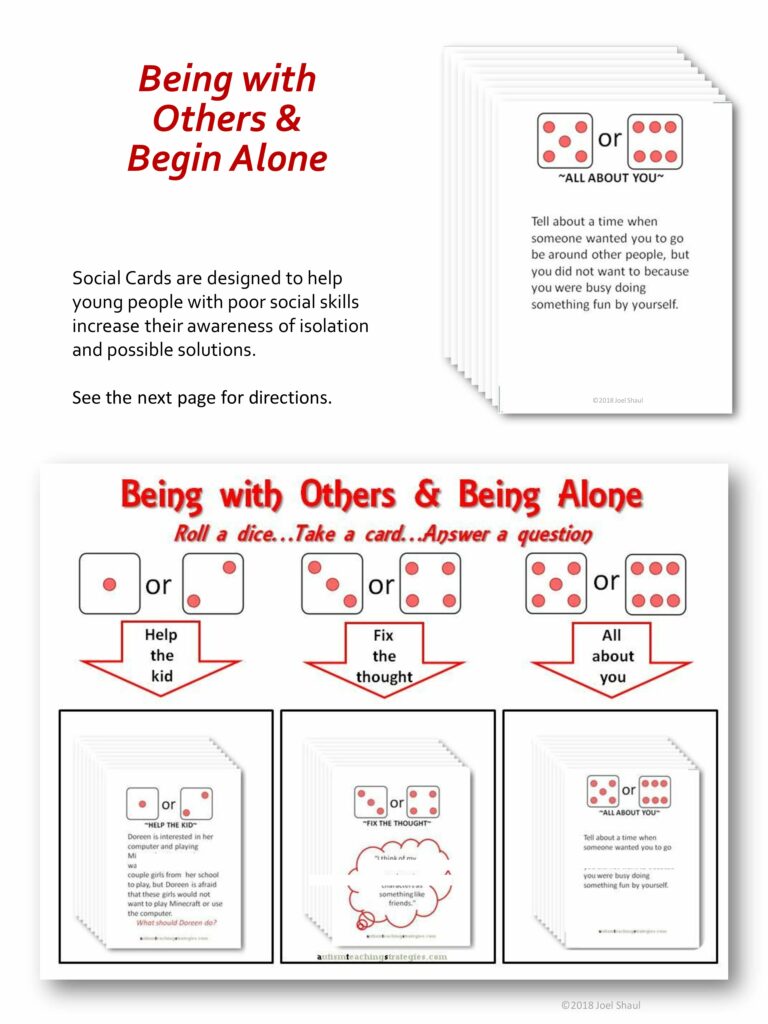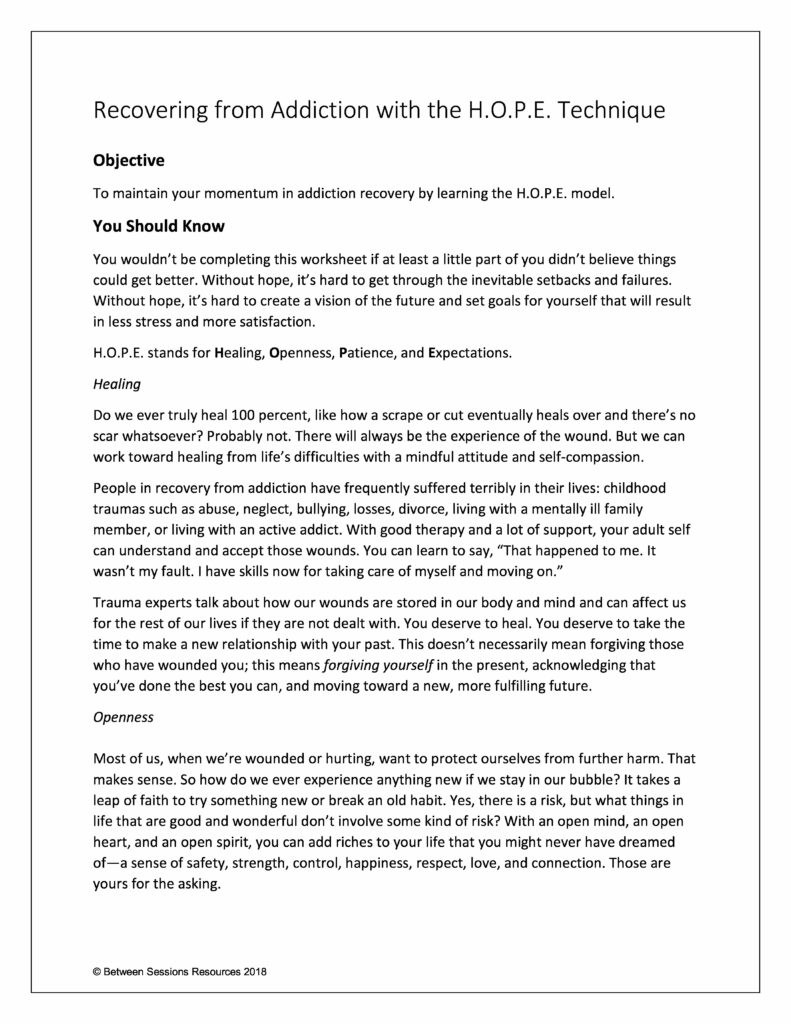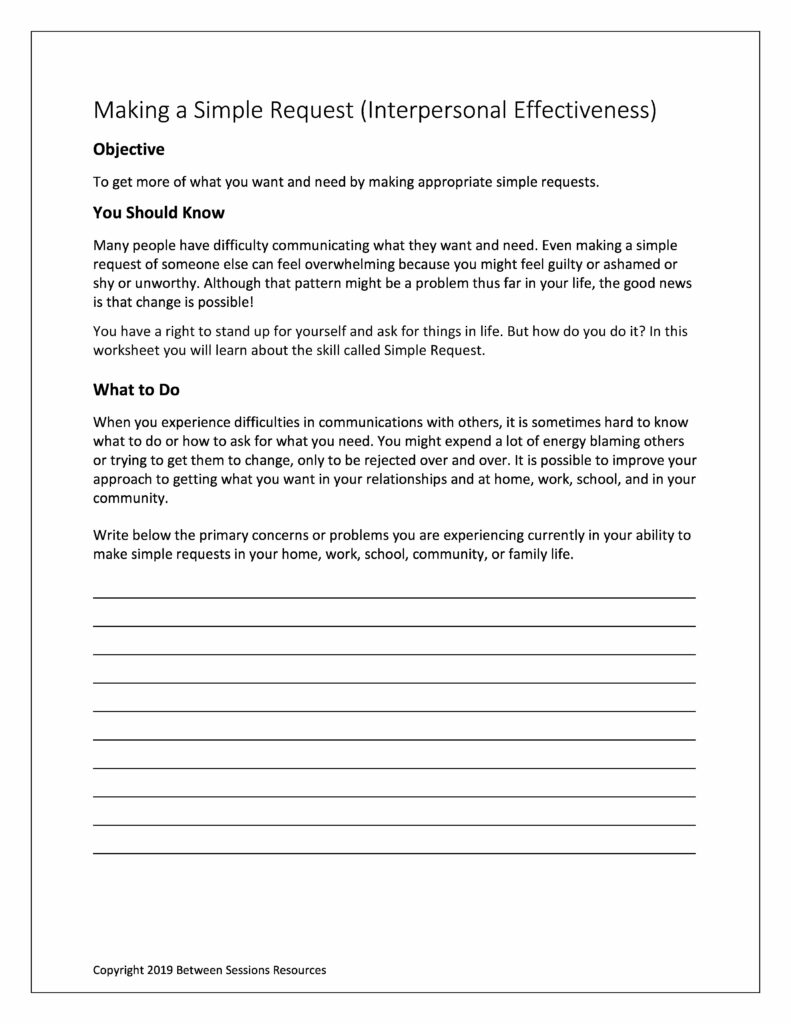Teens have a special way of communicating and learning about themselves, so we’ve made sure that all our therapeutic activities for teens are appealing and engaging to this age group.
To modify the tools, click the ‘Send to Client’ button by each tool to open the Psychology Forms Filler. You can then edit the tool as you see fit and either print it out or send it to a client to be filled out online. Click here for a tutorial on using the Psychology Forms Filler.
We’ve tried to address every teen issue we can think of, and more tools are added every week!
If you are looking for something you can’t find on this site, please let us know by clicking here and our team of writers, graphic artists, and therapists will custom-design it for you.
This worksheet is designed to help people with eating disorders identify the messages about eating and food that they received in their childhood, from their cultural background, that they received from their social ground, and that they receive from the media. They are also asked to think about how much these messages affect their present problem with eating. (binge eating, anorexia, bulimia, eating disorders, 0619)
This worksheet is designed to help teens explore issues of gender dysmorphia and identify ways to seek help when they need it. (062019)
This worksheet is designed to help people take more social risks. Many people with social anxiety dread that they will embarrass themselves in public. This worksheet asks them to choose three situations where they deliberately make a social mistake in order to see that others really don’t care. (social anxiety, shyness, thought distortion, exposure therapy, 0520)
This simple card game is designed to help children and younger teens understand the consequences of being alone. There are three types of cards. The first type of card encourages children to make pro-social choices. A second card type helps children develop more pro-social thinking. The third type of card asks children to talk about experiences being alone and being with others, opening up conversations about what they can do differently. (Asperger Syndrome, ASD, Autism Spectrum Disorder, 0519)
This worksheet is designed to help people with social anxiety learn tolerate the uncertainty of many social situations. The worksheet uses the technique of systematic exposure to help people gradually accept the fact that they can cope with or adapt to almost any situation. (social anxiety, 0519)
This cartoon shows the consequences of not keeping a secret, and asks teens to discuss a situation when someone they know has failed to keep a secret. (0519)
Print out this brochure on teen depression created by the National Institute of Mental Health. It explains the nature of depression, the signs of suicide, what kind of help is available, and more. Education in teens is key to prevention. (0519)
This worksheet introduces people to the concept of Mandalas to manage their emotions. (bipolar, depression, anxiety, 0519)
This worksheet describes the HOPE Technique to help people in their recovery from addiction. The technique includes: healing, openness, patience, and openness. (alcohol addiction, drug addiction, healing, 0419)
This worksheet is designed to help people get more of what they need learning how to make appropriate simple requests. This a DBT technique intended to help people develop their personal effectiveness. (DBT, assertiveness, 0419)










